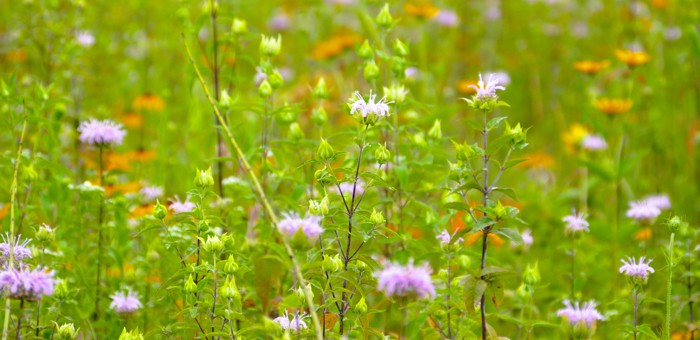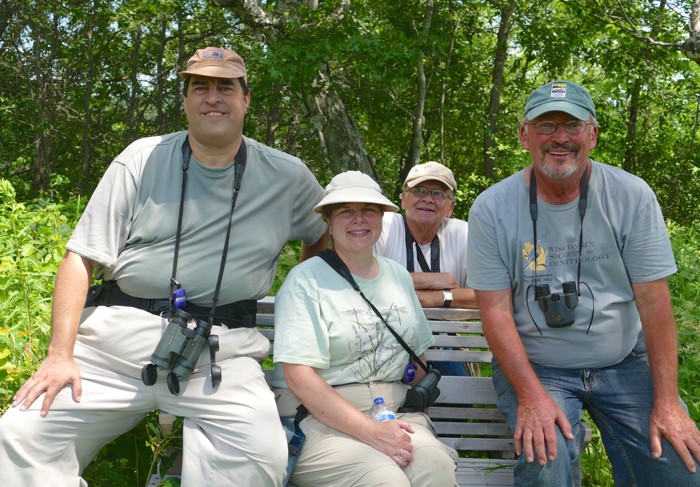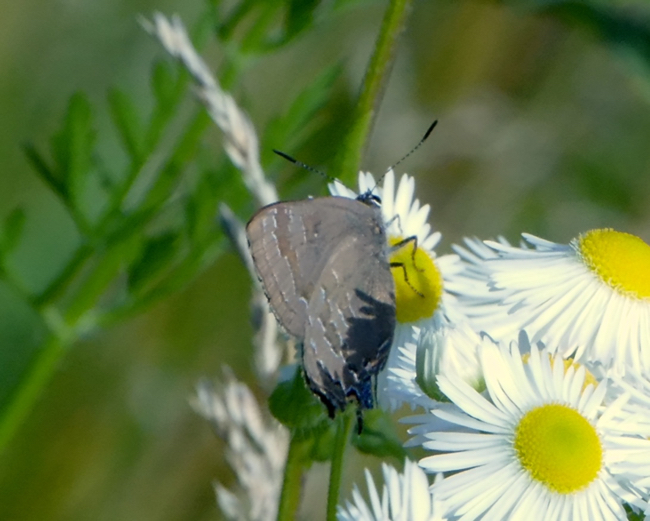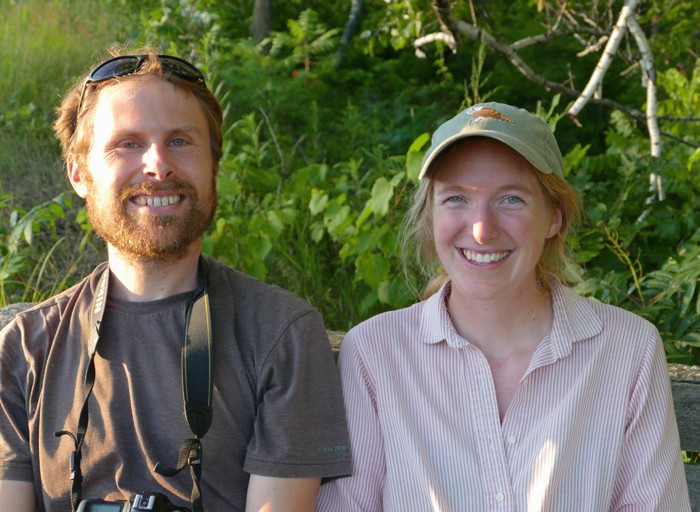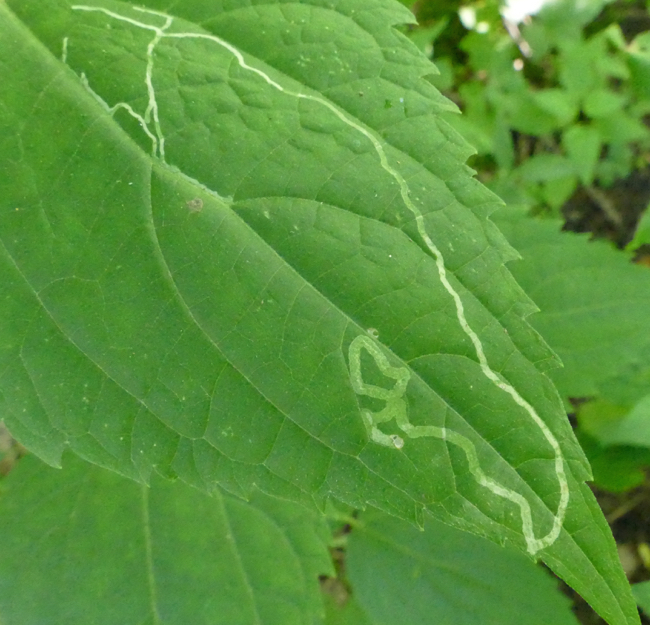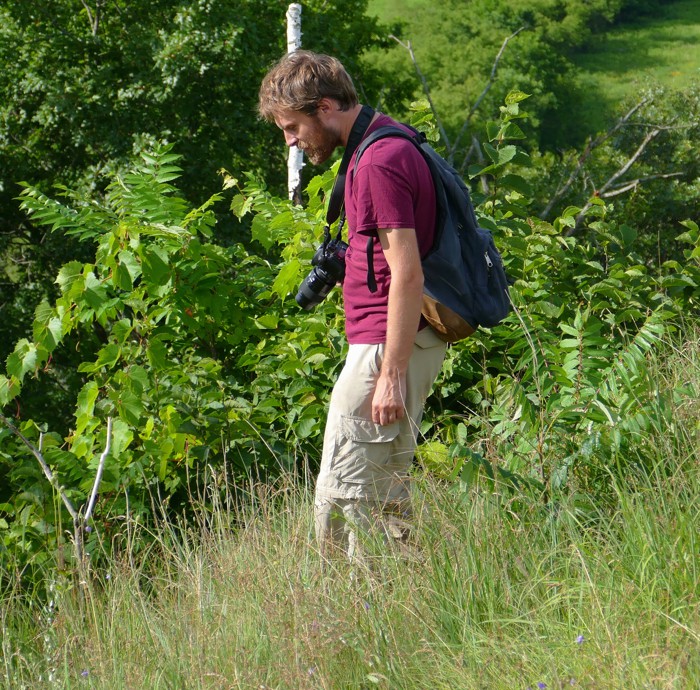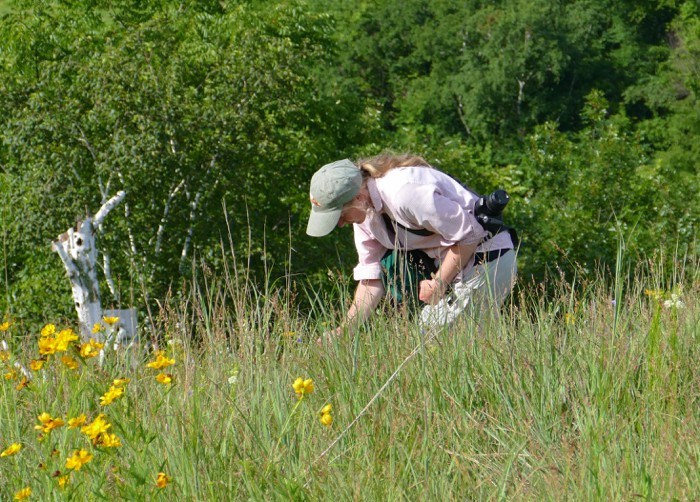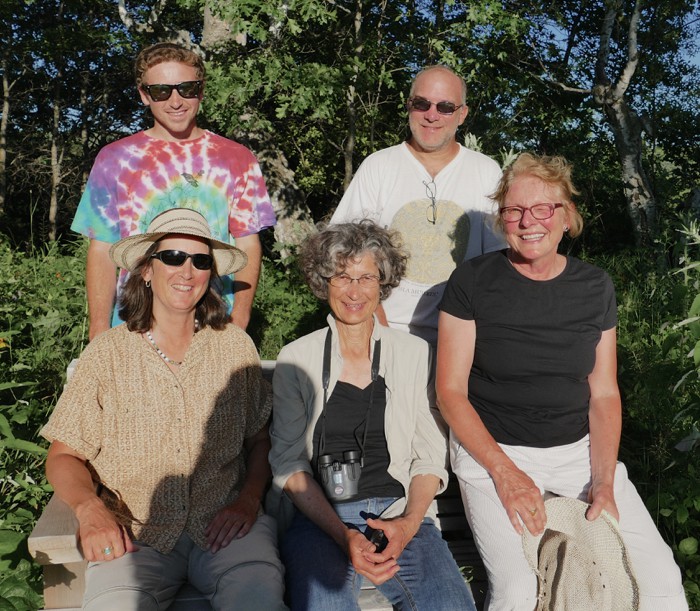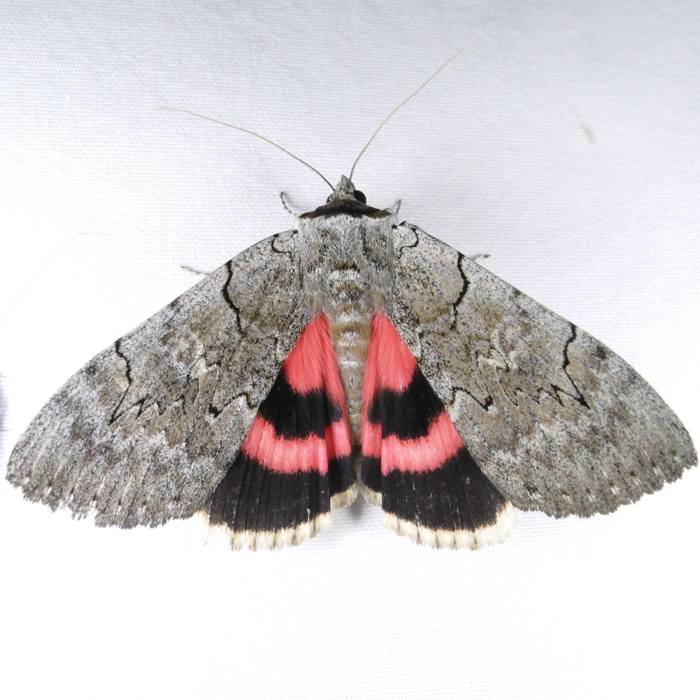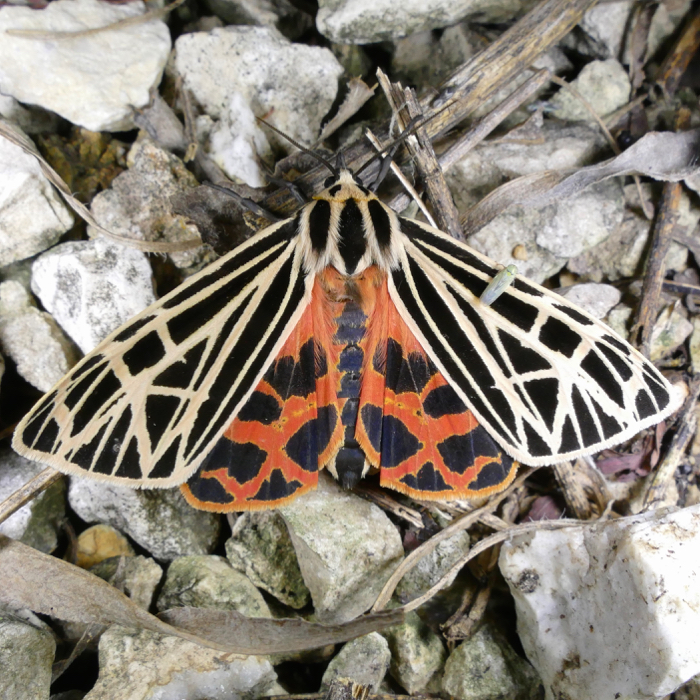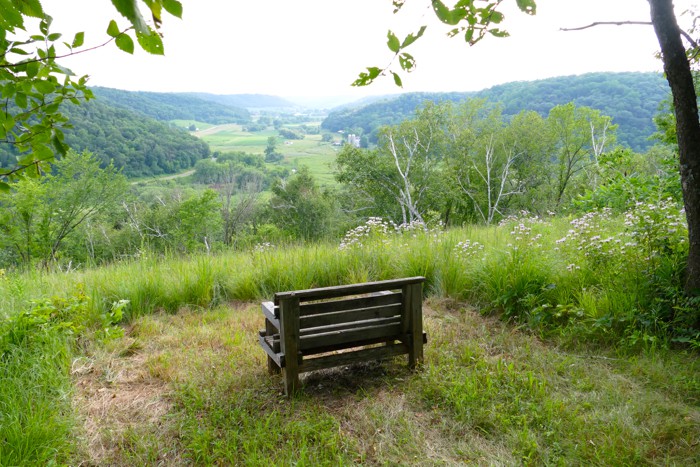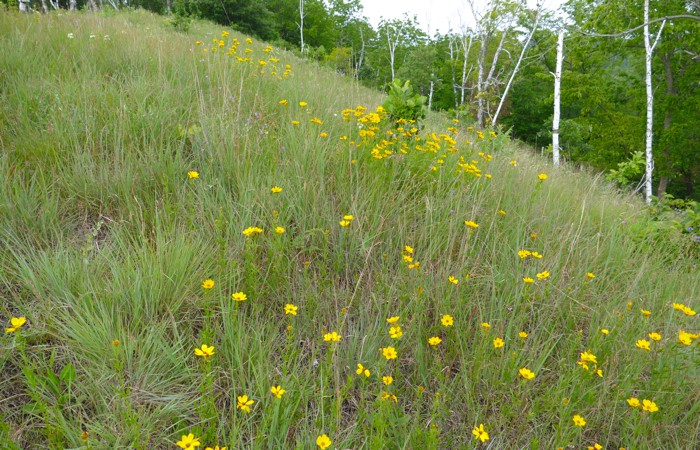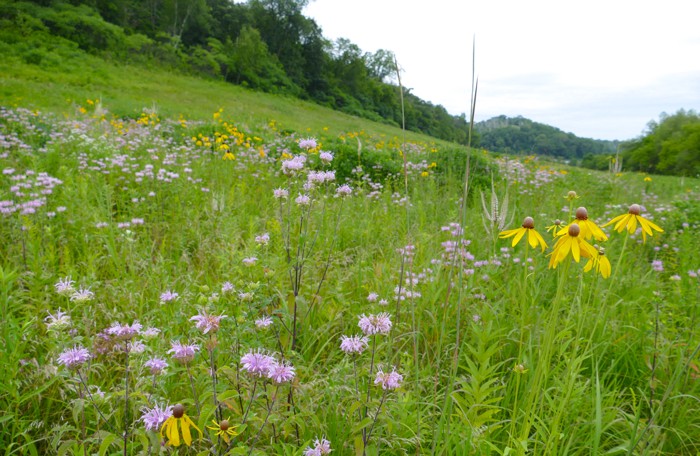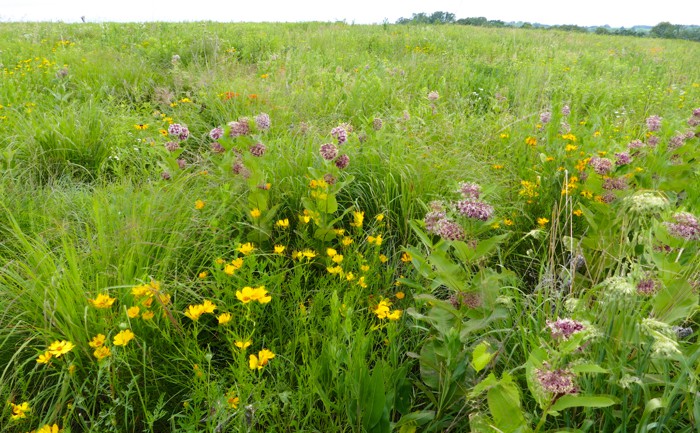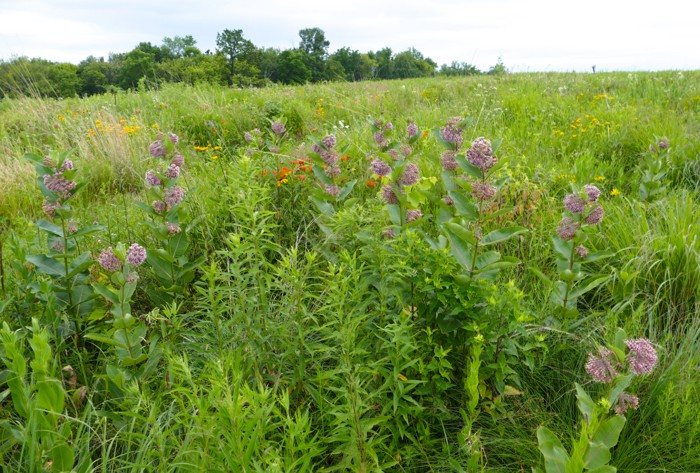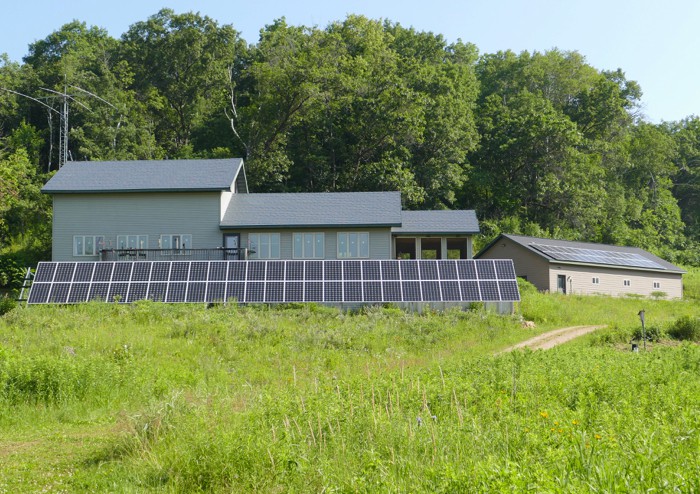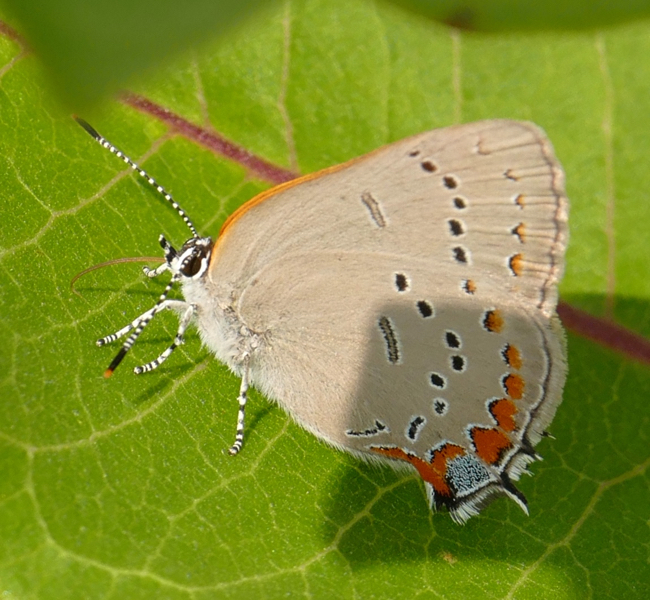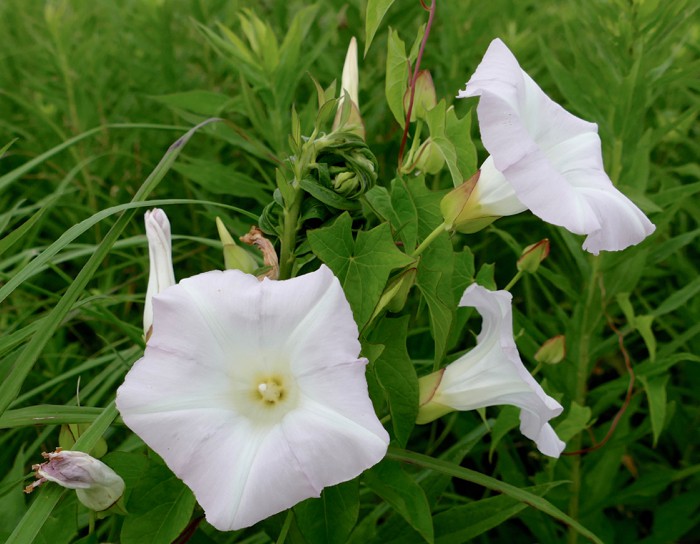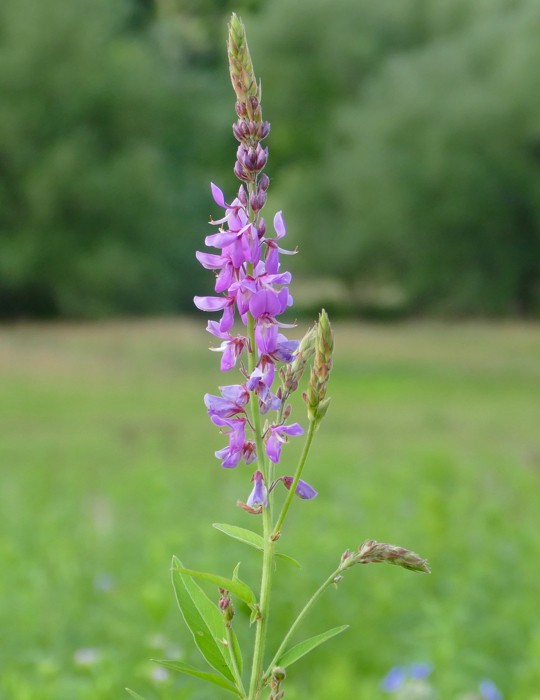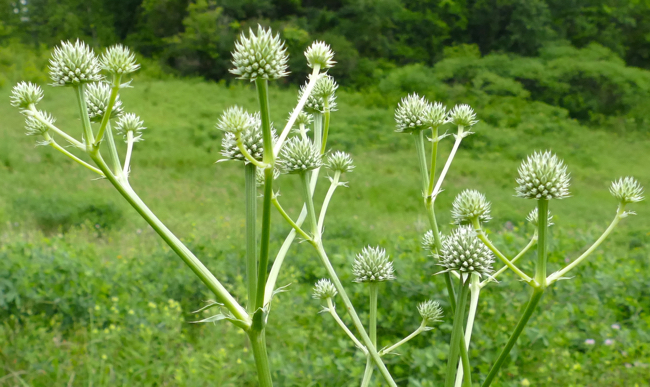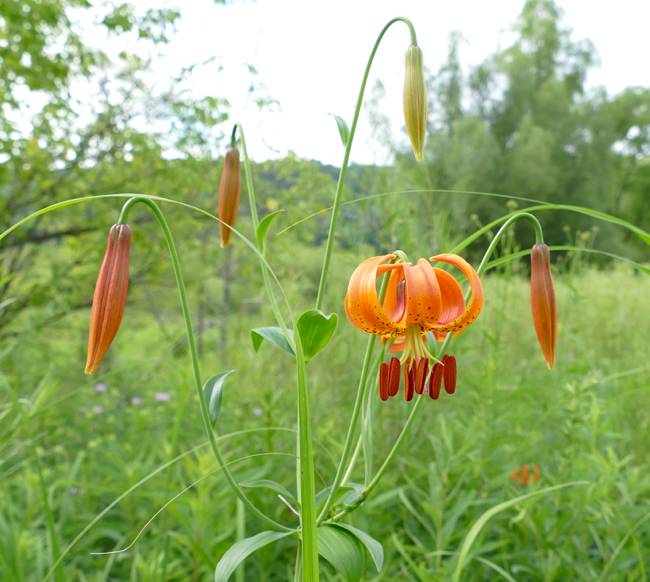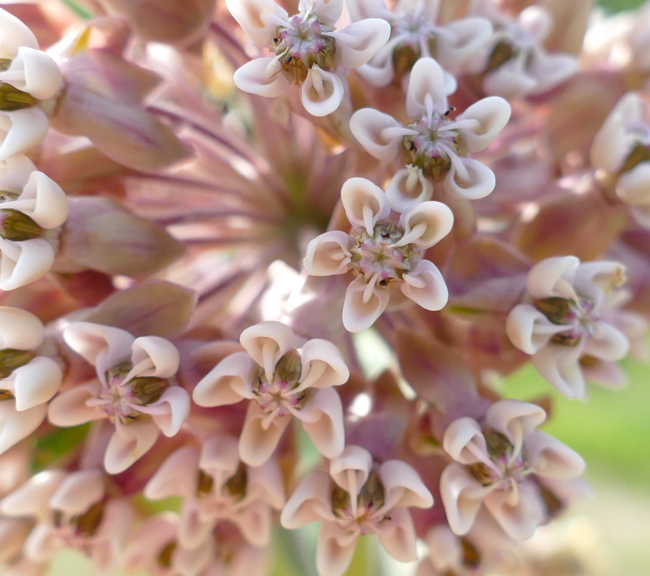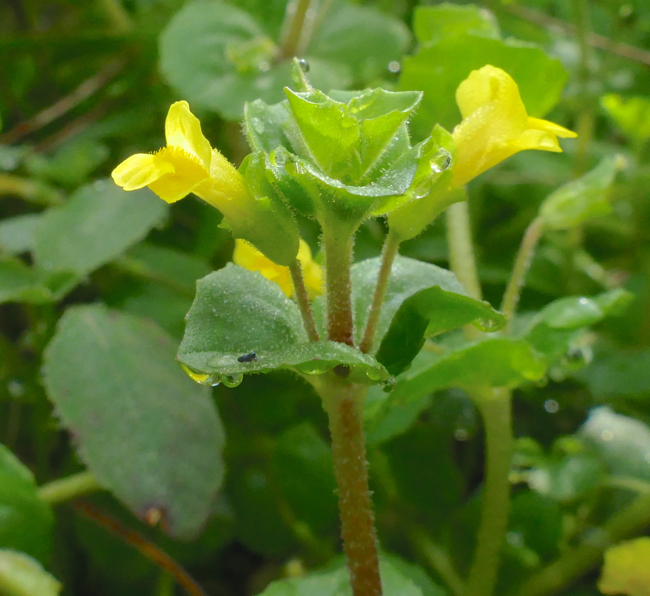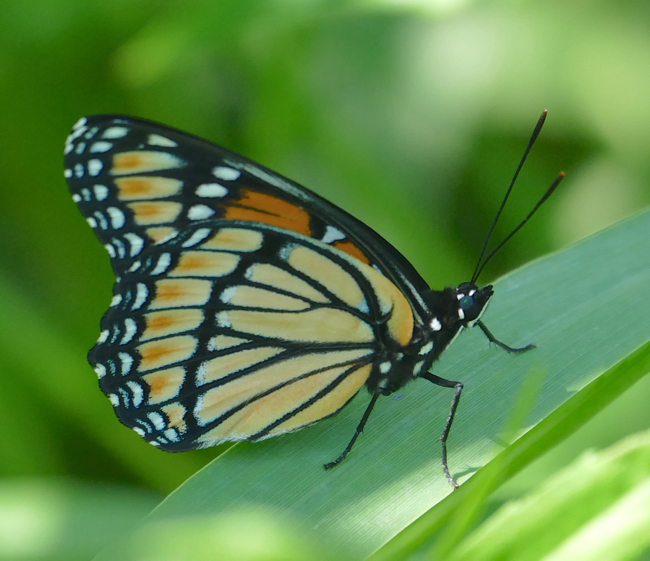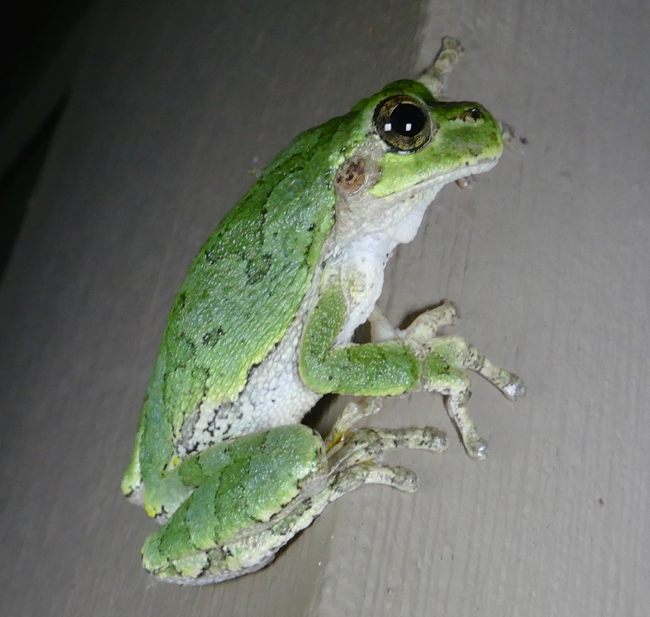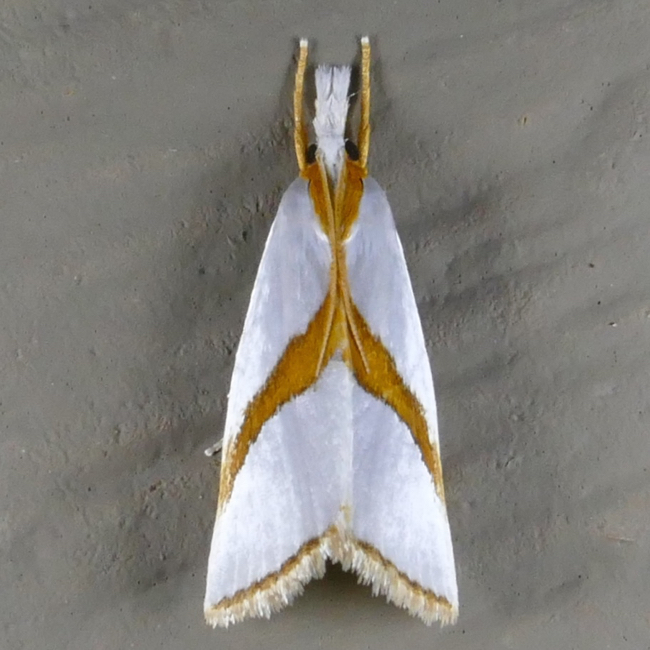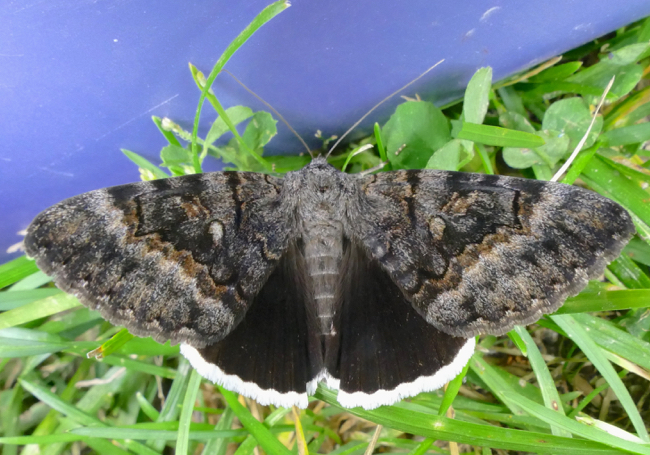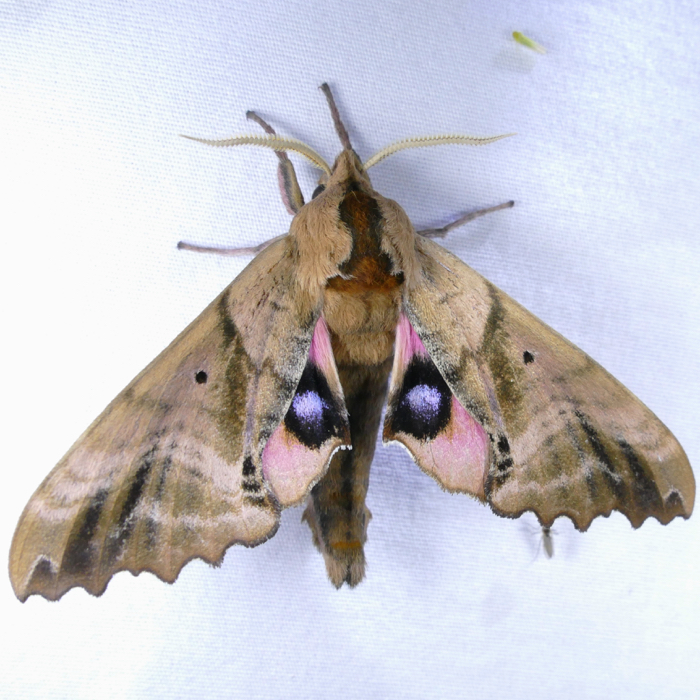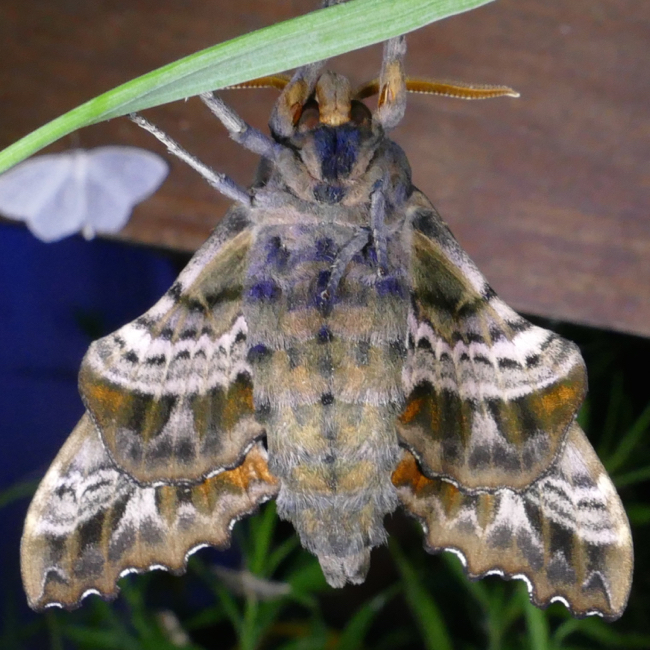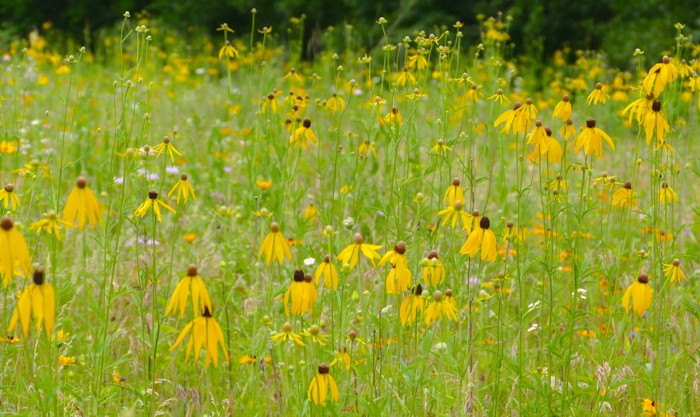This is the busiest time of the summer here – lots of visitors, and the peak of summer flowering in the prairies.
Monarda and Oxeye in Buffalo Ridge Prairie
We did our annual Butterfly Count on July 9th. We didn’t see as many individual butterflies as usual, but we beat our record for the number of species. The old record was 39; this time we saw 41 species.
Here’s the count crew
The best part for me was seeing a new species for the farm – a Hickory Hairstreak. It’s a terrible photo – it only stayed still for one far away shot. But Mike Reese was able to confirm the ID. Now I need to find some more.
The other fun experience was finding dozens – we estimated 50, but there may have been more – Banded Hairstreaks zipping around a couple of oak trees in one of our restored savannas. I’d never seen so many before. They were chasing each other over and under and around the leaves. We could see active fluttering groups of them all around the branches, far up into the trees.
Another great visit was with Charley Eiseman and Julia Blyth. Charley is working on a book on leaf mines, and this was part of a trip they took around the country to collect some.
Here they are on one of our benches.
Leaf mines are the trails that some insects leave by eating in the space between the top and bottom surface of a leaf. Mines are made by the larvae of certain species of flies, moths, beetles and sawflies.
This mine is in a White Snakeroot leaf. (Charley says that the mine is probably the work of an Agromyzid fly that may be an undescribed species.)
It’s often possible to tell – for Charley to tell – what insect has made the mine by knowing the plant, and seeing the visual characteristics of the mine. His book will have keys to figure out the insects.
I took them on two wandery walks through our woods and up to two of the bluff prairies. They found lots of leaf mines – I hope some will be new for their collection, and maybe even entirely new species.
Charley, searching Indian Grass Point
Julia
Last week we held our annual Moth Party, to celebrate National Moth Week. The forecast was for possible thunderstorms but they never materialized , and the weather turned out to be perfect for both people and moths.
I took one group on a hike up the hill, to see one of the bluff prairie remnants, and some of the planted prairies.
Ethan, Laen, Me, Joe and Liz – in the blazing afternoon sun
We saw 70 species of moths. Click this link for more photos of the party and all the moths we saw.
Here are two of the favorites from that night. They had to be encouraged to show off their hind wings.
Pink Underwing
Virgin Tiger Moth
Here are some views of the prairies from the last few weeks.
Big View Prairie – the bench was so overgrown by tall prairie plants that Mike had to mow around it so we could sit on it.
Indian Grass Point – a remnant bluff prairie
Pat’s Prairie – one of our earliest planted prairies – planted in the winter of 2000/2001
Western Prairie – our largest planted prairie – 60 acres. It was planted in 3 sections from 2005 to 2007.
Western Prairie
We did a big solar installation at the farm that was finished about a month ago. It’s so nice to be making our own electricity! Here’s a link to Mike’s story about the project.
And here are a few more favorite flower, moth and butterfly pictures.
Acadian Hairstreak
Hedge Bindweed
Showy Tick-trefoil
Rattlesnake-Master This plant isn’t native to this part of Wisconsin, but it came as a volunteer in some other seeds I purchased. It’s such an interesting looking plant that I enjoy having it – and it seems to be happy here.
Michigan Lily
Common Milkweed
Round-leaved Monkeyflower – a plant that I just discovered growing in the stream coming from one of our springs – a new one for my list.
Viceroy
Gray Tree Frog – checking out the moths at my lights
Straight-lined Vaxi
Epione Underwing – a new moth species for the farm
Blinded Sphinx – these are fairly common at my lights at this time of year
The underside of a Blinded Sphinx – I’d never looked at this side before – it’s as beautiful as the upper side
Yellow Coneflowers in Buffalo Ridge Prairie

